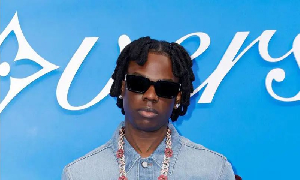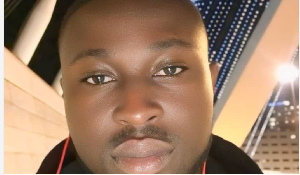19th September, 2011
University of Cape Coast, Cape Coast.
Over the last couple of weeks, Ghana’s media, political establishment and punditocracy have been obsessed with wikileaks. It is as if nothing else of importance is happening.
In excited shouting matches that have gone on between the parties and sometime within the parties, a lot of allegations from wikileaks have been repeated.
- The sitting President has been accused of lying about his health
- A former President has been accused of plotting to murder a journalist
- Another former President has been accused of being a drug user
- A Presidential candidate has been accused of drug use
- The Speaker of Parliament has been described as nothing more than a puppet
- People of a particular faith were written off for the Presidency
These accusations are not all that have been alleged but these would suffice.
I have been stunned by three things.
First, we seem to hate one another a lot. There was hardly an instance in the wikileaks when people had positive things to say about one another. These cables were a classic manifestation of the politics of Pull-him-down. It would have been nice, for a change if quite a few people had been in the cable praising others. Would it not have been heart-warming for someone at the state department to read about Mills’ brilliance or Nana’s leadership or how Kufuor made this or that great decision? Unfortunately, the gossipers were only interested in negatives.
Second, we seem to think that getting a chance to gossip to Americans about other Ghanaians is an honour and a privilege. At heart, it seems too many of us look for approval from the West and its institutions. While we can watch and learn from them, we must never subordinate our pride or national interest to them.
Third, we seem to be creeping towards the kind of Justice System in which one can be accused of anything and asked to prove his or her innocence. Our nation, according to our constitution has a justice system that is based on due process and the presumption of innocence. It used to be that we required proof from those who alleged things against others. It seems we no longer permit the need for proof to stand in the way of using unsubstantiated allegations to destroy others. Take my small and tangential involvement in wikileaks for instance. Someone alleged, during discussions of wikileaks that while I was a Presidential aspirant, I had paid Mr. Ben Ephson money to conduct a poll for me. In the good old days, before being asked to respond to this allegation, someone would have demanded proof and it would have been provided. However, despite the fact that no poll has ever been conducted for me, by anyone, and both Mr. Ephson and I denied it, serious news organizations gave their platforms to those making this unfounded allegation.
Both former Presidents Rawlings and Kufuor have felt it necessary to come out to defend themselves against unsubstantiated rumours contained in wikileaks.
Before we continue this self-immolation we have embarked upon with the help of wikileaks, we must pause to reflect a bit.
What is contained in wikileaks about Ghana that we have seen is not some truth from on-high. It is not backed up by any evidence. Most of it is uncorroborated.
Indeed, to be blunt, for the most part, the wikileaks cables consist of nothing more than wicked and idle gossip by Ghanaians about other Ghanaians reported by American diplomats to the State department. Somehow, it appears that just because these gossips were then put in diplomatic cables, they have attained the status of incontrovertible facts.
Sadly, while we have been obsessed by wikileaks, the Americans have moved on. I just returned from the United States. While there, they were concerned about jobs. They were concerned about their economy. They were concerned about healthcare. They were concerned about the amount of borrowing by their government. And they did not think borrowing was a good thing. Whether it was President Obama giving a speech or Republican Presidential candidates having a debate, these were the topics of concern to Americans. Mr. Obama, with an election looming on the horizon is doing his best to bring unemployment, which is now above 9% to below 8% to improve his chances of being elected. His record in office is being dissected and debated across the United States. Last time I checked, we do have an election in 2012—just like the Americans.
Unfortunately, we have many Ministers who are not sure what our unemployment rate is. But they know a lot about wikileaks.
This obsession with wikileaks seems to be a diabolical plot concocted by those who want to divert us from the important problems that confront Ghana and Ghanaians. By this, I do not mean that all those involved are conspirators. I believe many have become innocent tools of this grand diversion that is only hurting our nation. What our political leaders do not realize is that the more a party uses wikileaks to attack other parties and leaders, the more credible they make wikileaks.
Why is it that here in Ghana, we are not interested in serious issues? Why are we more interested in wikileaks than jobs? Is it because unlike America Ghana does not need to worry about jobs?
Why is wikileaks more important than the education of our children? Is it because unlike America, our educational system is not facing any problems? A ranking of African Universities released recently had the best University in Ghana ranking 39th in Africa! Thirty-ninth and we are talking about wikileaks?
Why are we more interested in Nana Akufo-Addo’s personal problems than the programs he is putting out for his future government?
Why are we more interested in the President’s health than what he has done to improve our healthcare?
Why are these wicked wiki-leaks rumours more important than our parties not filing statements of accounts with the Electoral Commission as required by our laws?
I believe that a number of factors are responsible for the trivialization of our politics.
First, our politicians have put insults ahead of ideas. Instead of engaging one another in the serious issues that confront our nation, we prefer to trade wild accusations about one another. Day after day, the public tunes into T.V. and radio stations that have become, in most cases, nothing more than outlets for garbage. Our parties must stop sending into our media houses—people who are celebrated more for making noise than for making sense.
Second, in search of sensationalism, the media have become unwitting accomplices to political elites who are more interested in hiding their dismal records behind insults than solving our problems. They should stop inviting onto their programs those who are only interested in insults.
Third, the institutions that should hold the media and politicians accountable for this dereliction have gone to sleep. Amongst these are the political parties, the National Media Commission and the Ghana Journalists association.
Fourth, we have a general public that at best tolerant of mediocrity and at worst feeds on the mediocrity. News programs and news analysis have become nothing more than entertainment, viewed on the same level with situational comedies.
It was very refreshing to watch shows on T.V. in the United States and listen to debates. One really gets educated by watching and listening to those. Before anyone says that Ghana is not America, let me acknowledge that myself. My response is that we must aspire to be the best if we hope to be the nation our founders meant us to be. We should not aspire to be like Mali or Niger or Chad. We must reach upwards and forwards—all the time.
How can we begin to focus on the important priorities of this nation?
First, we must stop treating wikileaks like Biblical verses. It is just gossip.
Consequently, we must stop demanding that people proof their innocence when no one has put forth evidence of their guilt. The political parties have been most guilty of this twisting of wikileaks in order to tar or embarrass others. To those whose unflattering gossip got revealed in wikileaks, let them apologize to those they slandered and beg for forgiveness—from those they maligned as well as from God. The Bible admonishes us not to bear false witness.
We need our two major parties to stop focusing on wikileaks and start debating how to get our people working and going to school. The exchange of insults based on wikileaks will never get a job for one unemployed young person or educate a child or prevent an accident.
To this end, we should ask Nana Addo questions about his Liberty lecture instead of wikileaks. We should ask President Mills about accidents and jobs and Liquified gas—not about wikileaks.
Second, our media must focus more on our development rather than our collective defilement. The treatment of politics as entertainment with the goal of cheering on activists as they insult and denigrate each other’s party and leaders is disgraceful. Let the Press houses sit up and live up to their responsibilities and let the National Media Commission and Ghana Journalist Association rise up and meet their historic responsibilities. I look forward to the day when Jake Obetsebi Lamptey and Dr. Kwabena Adjei will debate jobs on metro. I want Sir John and General Mosquito to debate the “Bui dam” in the context of our energy needs.If the media does not police itself responsibly, we will wake up one day to find that someone has introduced another Libel law and that no one objects to it.
Third, our civil organizations must raise their voices in helping Ghana get to the politics of substance. They should encourage a discussion of the nation’s problems. I hope that one of these days, there would be a symposium at Legon or the British Council or UCC to discuss the proposals put forward by Nana Akufo-Addo in his “Liberty Lecture”.
Finally, without a public that insists that our politicians must address important issues, our politicians will continue to focus on trivia. We must insist that our politicians focus on the business of the people instead of their own quarrels. People like those who lost loved ones in the Yarkwei accident—People like the taxi drivers queuing for liquefied gas--- People like the farmers being terrorized by Fulani headsmen.
Ultimately, the public can speak through the ballot box. When our politics reward those who believe in insults more than ideas, we will get more of the same.
Let us insist that the “Yutong bus” driver move forwards, not backwards or sideways.
Let us get on with the unfinished business of building a “Better Ghana”. That job remains undone, to a very significant extent.
Let us move forward—together.
Arthur Kobina Kennedy
Opinions of Monday, 19 September 2011
Columnist: Kennedy, Arthur Kobina
The Wikileaks Diversion
Entertainment













